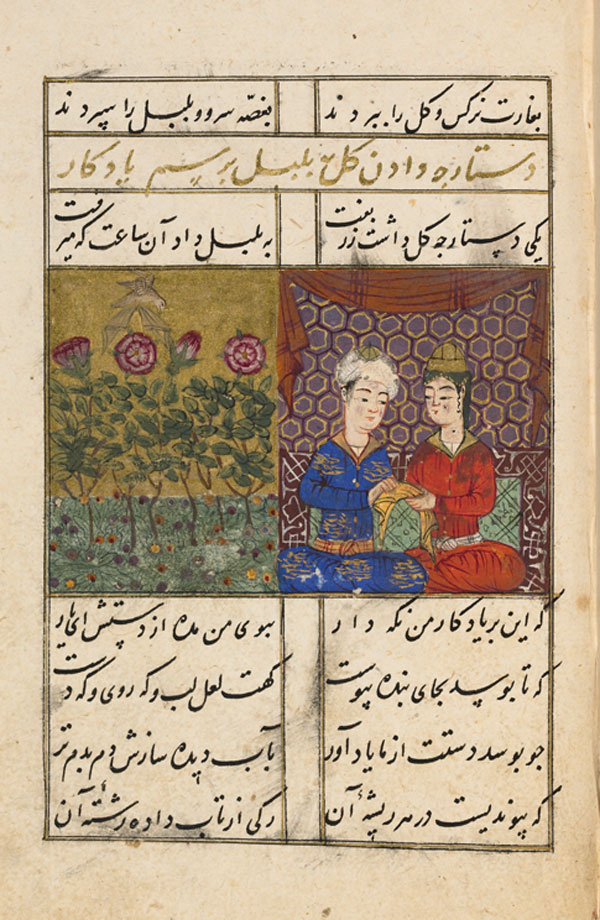A scene with a couple portrayed as 15th century Ottomans
from Dilsūznāmah (Book of Compassion), 1455-56 AD
|
|
 Un rossignol, volant, apporte une écharpe, et Un couple d'amoureux, assis, tenant une écharpe. A nightingale, flying, brings a scarf, and a couple in love, sitting, holding a scarf. |